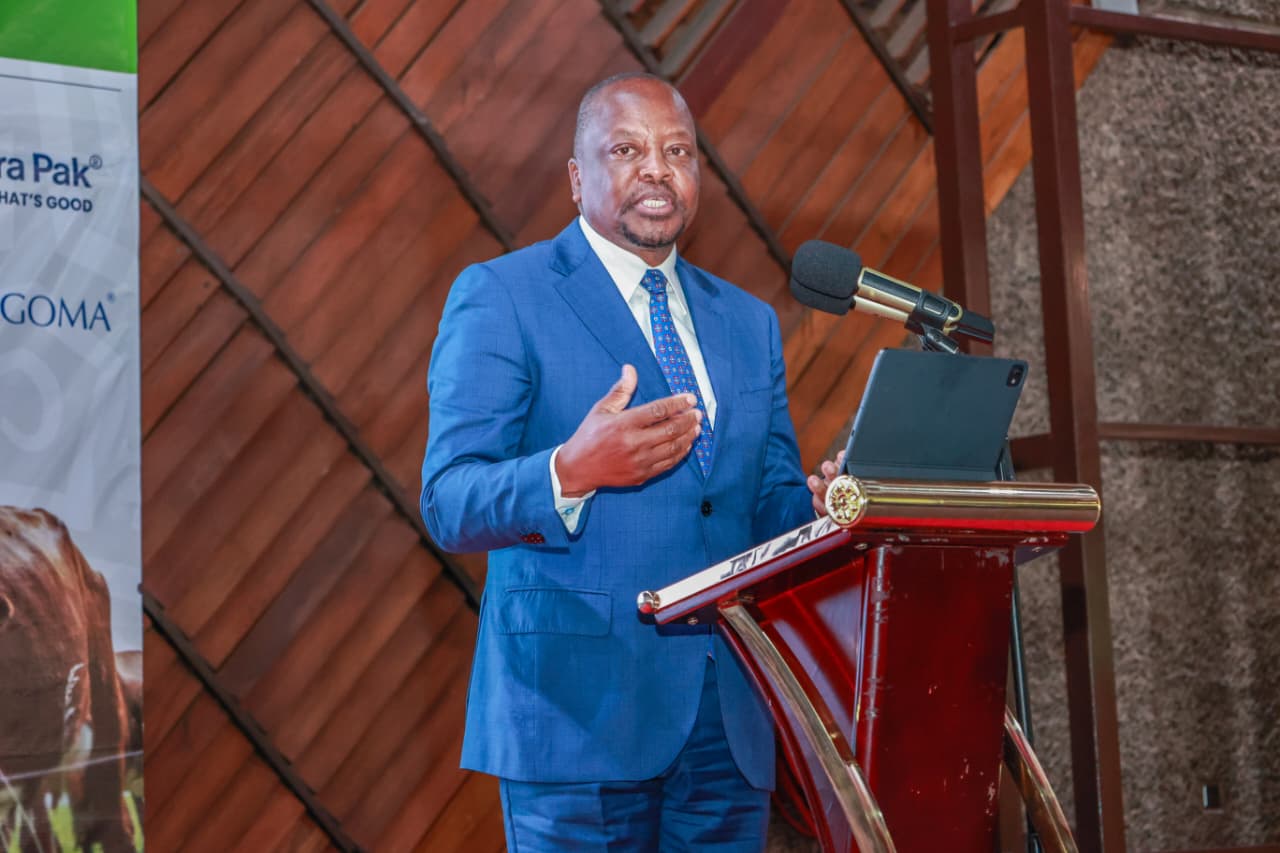
Agriculture and Livestock Development Cabinet Secretary (CS) Sen. Mutahi Kagwe has sounded a stern warning to Kenya’s dairy sector, insisting that the country’s ambitions to expand milk exports will collapse unless farmers and feed manufacturers decisively eliminate aflatoxin contamination and embrace a quality-based payment system.
Speaking on Thursday at the official opening of the 17th African Dairy Conference and Exhibition (AFDA17) at the Kenyatta International Convention Centre (KICC), Kagwe said contaminated feeds are undermining not only the quality of Kenyan milk but also the country’s credibility in regional and international markets.
“No export without quality. Aflatoxin in maize feeds passes straight into milk and locks us out of lucrative markets,” Kagwe declared.
“If we are serious about doubling production and exporting, we must fix feed quality first.”
The CS revealed that the Government will soon roll out a Good Quality Milk Certification Programme, setting benchmarks for hygiene and safety across the value chain.
Under the programme, farmers delivering clean and safe milk will be rewarded with higher earnings, while those delivering substandard produce will no longer be compensated at the same rate.
“We must all produce good quality milk, and the farmer must be recognised for doing the right thing,” he said.
“It cannot be the same amount for bad and good. Those who produce better will earn better.”
To tackle aflatoxin, Kagwe urged feed manufacturers and maize producers to adopt Aflasafe, a biological product that suppresses aflatoxin contamination in maize.
He directly challenged the feed industry to change its practices.
“Use aflatoxin-free maize. Adopt Aflasafe. This is the only way to guarantee the best milk for Kenyans and protect our place in global markets,” Kagwe emphasised.
Kenya produced an estimated 5.3 billion litres of milk in 2024, but under the Government’s Bottom-Up Economic Transformation Agenda (BETA), the target is to double production to 10 billion litres within the next few years.
Kagwe noted that meeting this goal will depend not only on addressing aflatoxin but also on cutting feed costs, improving cattle breeds, and rewarding farmers who consistently deliver high-quality milk.
Beyond Kenya’s borders, the CS challenged African countries to share best practices and harmonise standards under the African Continental Free Trade Area (AfCFTA).
He argued that Africa must stop importing milk powders from outside the continent while sitting on untapped potential.
“Africa can feed itself, and it can also export. But that will only happen if we focus on quality, competitiveness, and collaboration,” Kagwe said.
The AFDA17 forum has brought together policymakers, farmers, processors, and international stakeholders to deliberate on opportunities and challenges shaping Africa’s dairy sector.

Leave a Reply